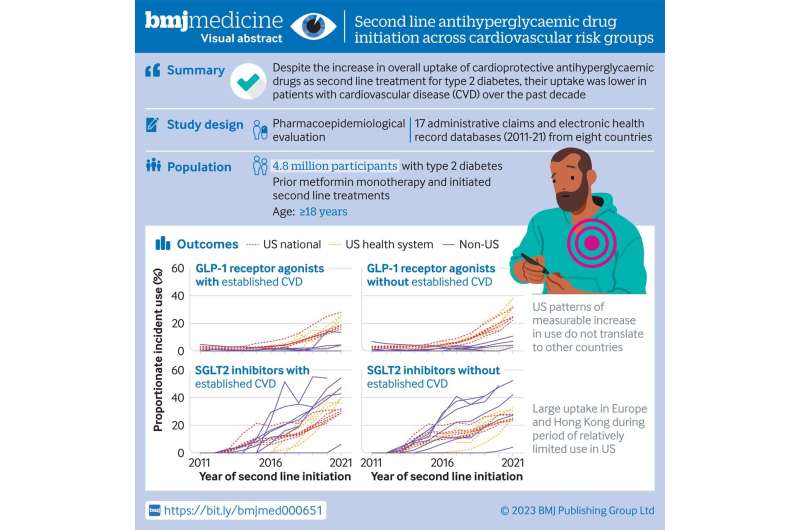
The use of cardioprotective antidiabetic drugs, including GLP-1 agonists like Ozempic, is on the rise. While these medications can help protect against cardiovascular disease (CVD), a new study published in BMJ Medicine finds uptake is lower among patients with CVD.
A team led by Yale School of Medicine’s Rohan Khera, MD, reviewed data from 4.6 million patients in five countries between 2011 and 2021. They found uptake of cardioprotective antihyperglycemic drugs—including glucagon-like peptide-1 receptor agonists and sodium-glucose cotransporter-2 inhibitors—increased over the 10-year study period, but the increase was larger among populations with no cardiovascular disease compared to patients with established CVD.
The researchers say a new strategy is needed to make sure lifesaving treatments are reaching the populations who need them most. “Aligning medication use with guideline recommendations is critical to improve outcomes for patients with type 2 diabetes,” Dr. Khera says. “We believe our approach can serve as a benchmark for monitoring the uptake of antihyperglycemic drugs in response to changes in regional guidelines, insurance coverage, and contemporary evidence.”
More information:
Rohan Khera et al, Multinational patterns of second line antihyperglycaemic drug initiation across cardiovascular risk groups: federated pharmacoepidemiological evaluation in LEGEND-T2DM, BMJ Medicine (2023). DOI: 10.1136/bmjmed-2023-000651. bmjmedicine.bmj.com/content/2/1/e000651
Journal information:
BMJ Medicine
Source: Read Full Article